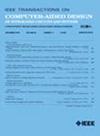SENTINEL: Securing Indoor Localization Against Adversarial Attacks With Capsule Neural Networks
IF 2.7
3区 计算机科学
Q2 COMPUTER SCIENCE, HARDWARE & ARCHITECTURE
IEEE Transactions on Computer-Aided Design of Integrated Circuits and Systems
Pub Date : 2024-11-06
DOI:10.1109/TCAD.2024.3446717
引用次数: 0
Abstract
With the increasing demand for edge device-powered location-based services in indoor environments, Wi-Fi received signal strength (RSS) fingerprinting has become popular, given the unavailability of GPS indoors. However, achieving robust and efficient indoor localization faces several challenges, due to RSS fluctuations from dynamic changes in indoor environments and heterogeneity of edge devices, leading to diminished localization accuracy. While advances in machine learning (ML) have shown promise in mitigating these phenomena, it remains an open problem. Additionally, emerging threats from adversarial attacks on ML-enhanced indoor localization systems, especially those introduced by malicious or rogue access points (APs), can deceive ML models to further increase localization errors. To address these challenges, we present SENTINEL, a novel embedded ML framework utilizing modified capsule neural networks to bolster the resilience of indoor localization solutions against adversarial attacks, device heterogeneity, and dynamic RSS fluctuations. We also introduce RSSRogueLoc, a novel dataset capturing the effects of rogue APs from several real-world indoor environments. Experimental evaluations demonstrate that SENTINEL achieves significant improvements, with up toSENTINEL:利用胶囊神经网络确保室内定位免受恶意攻击
随着室内环境中对由边缘设备驱动的定位服务的需求日益增长,Wi-Fi 接收信号强度(RSS)指纹识别变得越来越流行,因为室内无法使用 GPS。然而,由于室内环境的动态变化和边缘设备的异质性造成 RSS 波动,导致定位精度降低,实现稳健高效的室内定位面临着诸多挑战。虽然机器学习(ML)技术的进步已经显示出缓解这些现象的前景,但这仍然是一个未决问题。此外,针对 ML 增强型室内定位系统的对抗性攻击所带来的新威胁,尤其是恶意或恶意接入点(AP)所带来的威胁,会欺骗 ML 模型,从而进一步增加定位误差。为了应对这些挑战,我们提出了 SENTINEL,这是一种新型的嵌入式 ML 框架,利用改进的胶囊神经网络来增强室内定位解决方案对恶意攻击、设备异构性和动态 RSS 波动的抵御能力。我们还介绍了 RSSRogueLoc,这是一种新型数据集,捕捉了多个真实世界室内环境中流氓接入点的影响。实验评估表明,与使用模拟对抗攻击的最先进框架相比,SENTINEL实现了显著改进,平均误差减少了3.5倍,最坏情况误差减少了3.4倍。在使用真实世界的RSSRogueLoc数据集进行评估时,与最先进的框架相比,SENTINEL的平均误差和最差误差也分别减少了2.8倍和2.7倍。
本文章由计算机程序翻译,如有差异,请以英文原文为准。
求助全文
约1分钟内获得全文
求助全文
来源期刊
CiteScore
5.60
自引率
13.80%
发文量
500
审稿时长
7 months
期刊介绍:
The purpose of this Transactions is to publish papers of interest to individuals in the area of computer-aided design of integrated circuits and systems composed of analog, digital, mixed-signal, optical, or microwave components. The aids include methods, models, algorithms, and man-machine interfaces for system-level, physical and logical design including: planning, synthesis, partitioning, modeling, simulation, layout, verification, testing, hardware-software co-design and documentation of integrated circuit and system designs of all complexities. Design tools and techniques for evaluating and designing integrated circuits and systems for metrics such as performance, power, reliability, testability, and security are a focus.

 求助内容:
求助内容: 应助结果提醒方式:
应助结果提醒方式:


